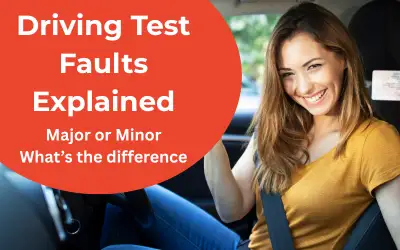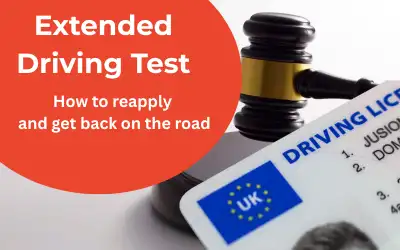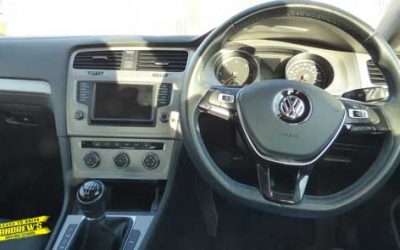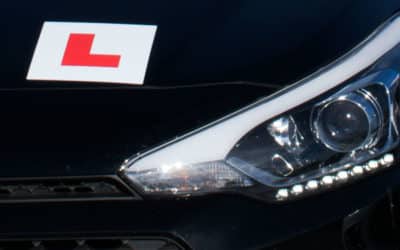What is Learner Insurance ?
How to insure your car as a learner and some money saving ideas
Getting Ready to Hit the Road? Make Sure You’re Covered with Learner Driver Insurance
Before you start practising outside of lessons, it’s essential to have the right learner driver insurance in place. This special type of cover — also known as learner car insurance — keeps you legal and protected while driving with a qualified supervisor. Whether you’re learning in your own car or borrowing a family member’s, knowing how to insure your car as a learner can save you money, safeguard the vehicle, and give everyone peace of mind. In this guide, we’ll explain what learner insurance is, how it works, and how to find the best policy for your needs.
The best insurance for learner drivers
Learner insurance (also called learner driver insurance or learner car insurance) is a special type of policy for people with a UK provisional driving licence.
If you’re learning to drive and want to practise outside of lessons, you need learner insurance to stay legal.
Unlike driving lessons with an instructor—where insurance is included—you’ll need your own cover to drive with family or friends. Without it, you’re breaking the law and risking fines, penalty points, or even disqualification.
If you’re looking for reliable, flexible cover, check out Collingwood Learner Driver Insurance.
They’re well known for learner-friendly policies that protect you and your supervisor’s no-claims bonus.
How Does Learner Insurance Work?
Learner insurance is designed to cover you while you practise driving with a qualified supervisor. It’s separate from driving lessons with an instructor, which already include cover.
You’ll need this insurance if you want to get extra practice with parents, family, or friends in their car or your own. It keeps you legal on the road, protects you financially if you cause damage, and gives everyone peace of mind.

Types of Learner Insurance
Named Driver on Someone Else’s Policy
You can be added as a named driver on a parent’s or friend’s insurance. This is easy but has downsides:
- It can raise their premium.
- Any claim might affect their no-claims bonus.
It works, but it’s not always the best choice.
Short-Term Learner Insurance
This is a flexible, stand-alone policy just for you. Cover can be:
- A few hours
- A few days
- Several months
Benefits:
Separate from the car owner’s policy, so no risk to their no-claims bonus.
- Only pay for the time you actually need.
- Fast, easy to set up online.
Perfect for borrowing a family member’s car for practice.
Annual Learner Driver Insurance
Best if you’ll be learning over a longer period or in your own car.
Advantages:
- Cover for a full year, so you can practise whenever you like.
- May let you start building your own no-claims bonus.
- Can sometimes convert to full driver insurance once you pass.
How Long Does Learner Insurance Last?
- It depends on what you buy:
Short-term policies can be super short (a few hours) or last months. - Annual policies cover a full 12 months.
Many policies let you cancel early without fees if you pass your test sooner.
Important: Once you pass your test, learner insurance usually ends immediately. You must switch to full driver insurance before driving alone.
Who Can Supervise You?
Your supervisor needs to meet these legal requirements:
- Be 21 or older.
- Hold a full UK/EU/EEA licence for at least 3 years.
- Be qualified to drive the car type (manual or automatic).
Some insurers require supervisors to be at least 25, so check the small print.
They also must stay alert—no phones or distractions. And you can’t do motorway driving with a supervisor (unless it’s with an instructor in a dual-control car).
What Does Learner Driver Insurance Cover?
Learner driver insurance usually offers these cover levels:
Third-Party Only – the legal minimum, covers damage to others.
Third-Party, Fire & Theft – adds theft and fire damage.
Comprehensive known as Fully Comp – covers damage to your car too.
Which is best depends on the car’s value and your budget. For a cheap, older car, third-party might be fine. For newer or more valuable cars, go comprehensive for better protection.

How Much Does Learner Insurance Cost?
Prices vary, but here’s what affects it:
- Duration – Short-term = great if you’re near your test. Annual = best for longer learning.
- Cover Level – Third-party is cheapest, comprehensive costs more.
- Supervisor – Older, experienced supervisors can lower the cost.
- Car Choice – Smaller, low-powered cars are cheaper to insure.
- Excess – Higher excess = lower premium.
- Security Features – Alarms and immobilisers help reduce costs.
- Black Box / Telematics – Monitors how you drive. Good driving = discounts.
- Shopping Around – Always compare quotes for the best deal.
Named Driver vs. Standalone Learner Policy
Named Driver:
- Added to someone’s existing policy.
- Can increase their premium.
- Could harm their no-claims bonus.
Standalone Learner Insurance:
- Separate policy just for you.
- Protects the car owner’s no-claims.
- Flexible cover options.
Most learners borrowing someone else’s car go for standalone learner insurance because it’s usually safer and simpler.
Does Learner Insurance Cover the Driving Test?
Often yes! Many learner insurance policies will cover you for your practical test, even letting you drive home after passing—especially if it’s a 7+ day policy.
But remember: once you pass, learner insurance ends immediately. You need full driver insurance before you can drive solo. You can learn more about insurance for new drivers here.
Some learner policies allow you to upgrade easily to a full policy for when you pass.
Legal Must-Haves for Learner Driving
- Clearly displayed L plates (or D plates in Wales).
- Car must have valid MOT and tax.
- Car must be roadworthy and safe.
- Supervisor can’t be paid (unless they’re an instructor).
- Supervisor must stay focused (no phone use).
Final Tips on Learner Insurance
- Decide if you need short-term or annual cover.
- Make sure your supervisor meets all legal and insurer rules.
- Shop around for the best price.
- Plan for the day you pass so you’re insured to drive home.
Learner driver insurance is all about keeping you legal, safe, and ready to learn confidently. It can also save money by having less hours from your instructor while gaining more driving experience.
Driving Test Faults Explained Major, Minor What makes a fail.
Driving Test Faults Explained, what makes minor or major, and how many faults can you accrue on your driving test
What You Need To Know About Driving In Winter
Winter Driving advice , Demisting and driving in Snow, Rain, Ice, Wind or fog. Learn how best to deal with the worst winter driving conditions.
Summer driving tipsdrivi
Great tips and advice for summer driving, from staying hydrated to keeping your windscreen clear. Stay safe on the roads this summer with our top tips.
How to pass your driving test first time
If you have a driving test coming up read our top tips to help you pass the driving test first time. Also driving test marking sheet explained. What to expect on test day? What car will I use for my driving test? How many minors can i get on my test? Answers to all of these questions.
How Many Driving Lessons do I Need?
How many lessons do I need, find out the average amount of driving lessons needed to pass your driving test.
Learner Drivers on Motorway
Learner drivers are now allowed to have driving lessons on Motorways. This new ruling came into force on 4th June 2018.
Extended driving test
What you need to know if you need to take an extended driving test. If you have been ordered by a court to take an extended test we have information to help you to get your license back.
Find a good driving instructor
Find a good driving instructor
Learning to drive with parents
A few guidelines to help you with private driving practice.
Why You Need Breakdown Cover
Breakdown cover is essential if travelling far from home or on motorways, read our guide explaining different types of cover available.











